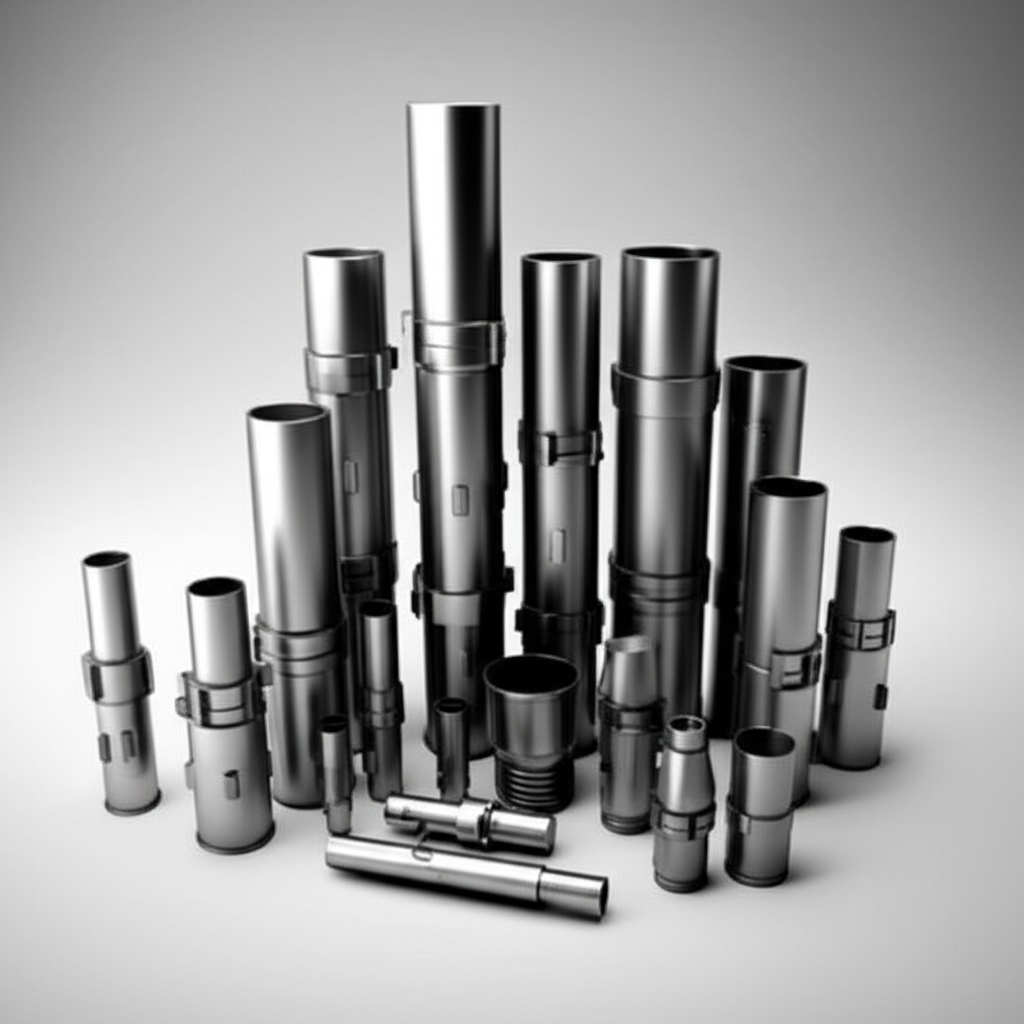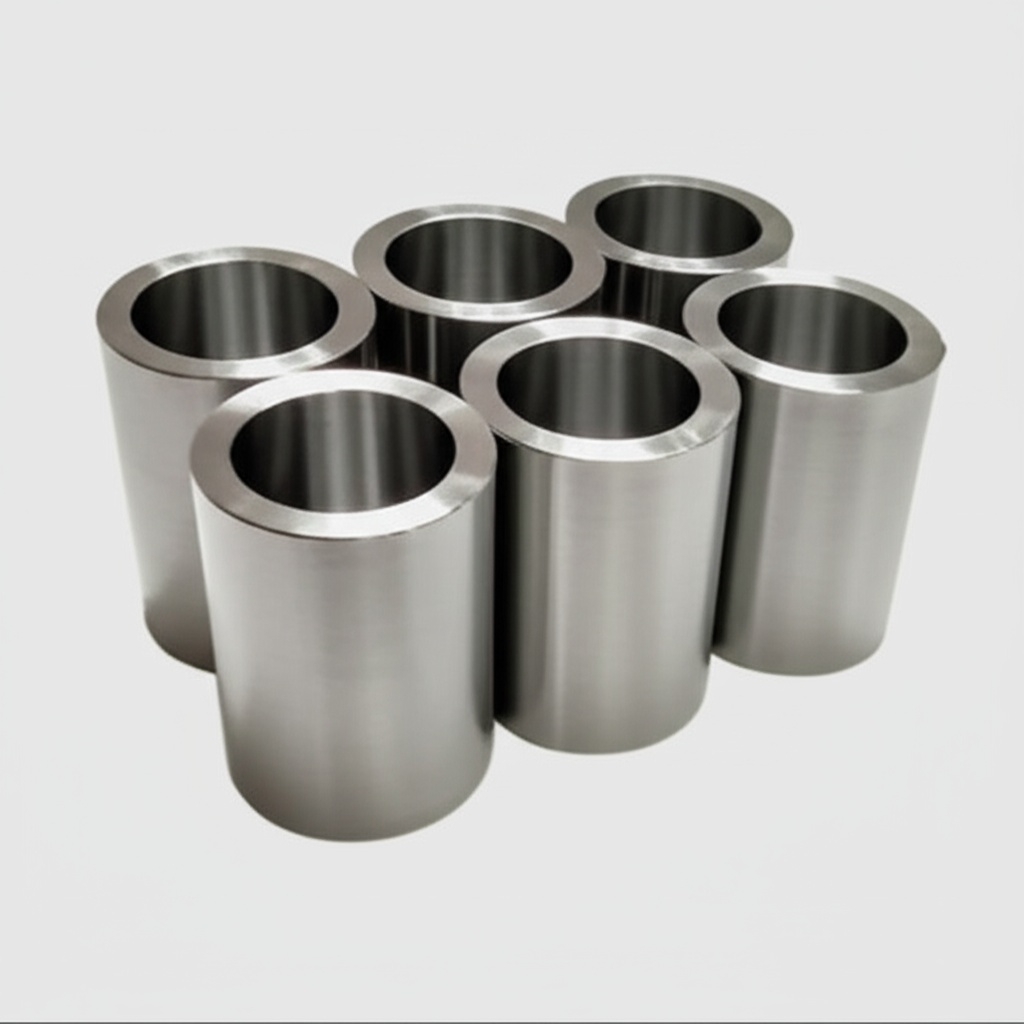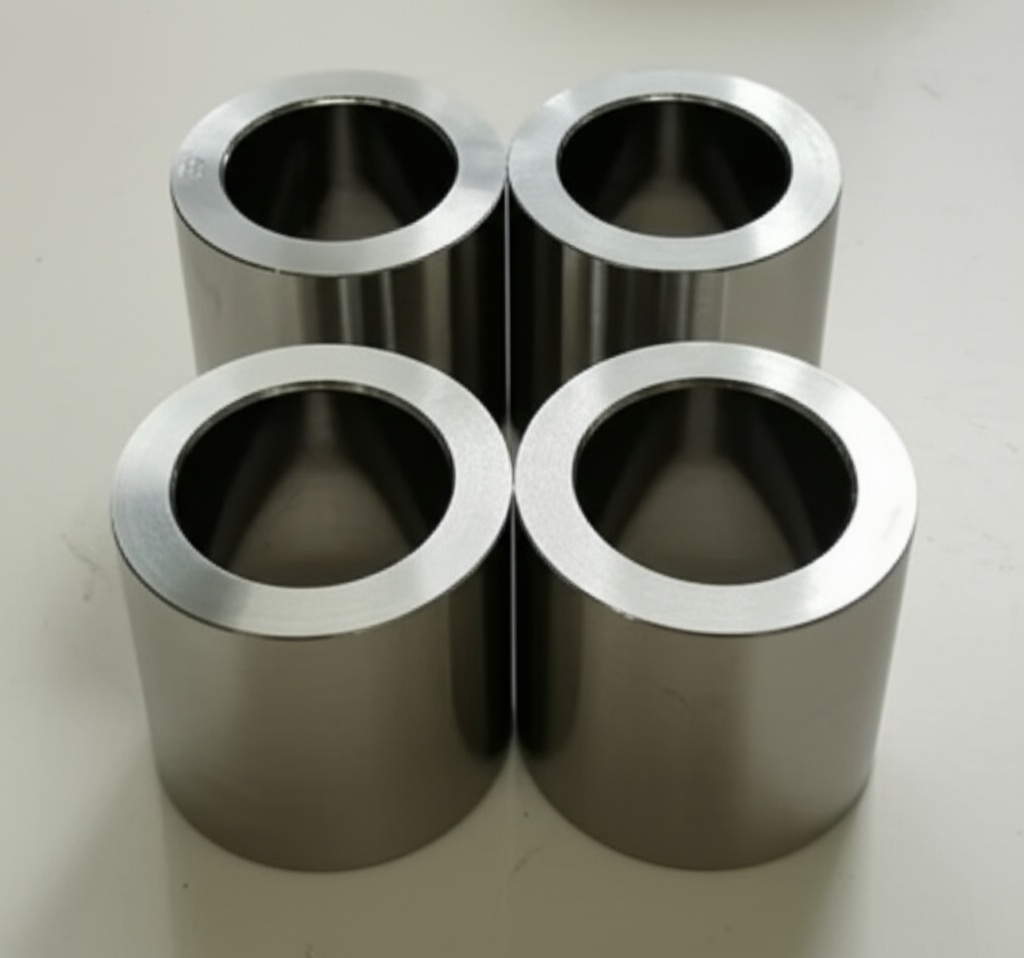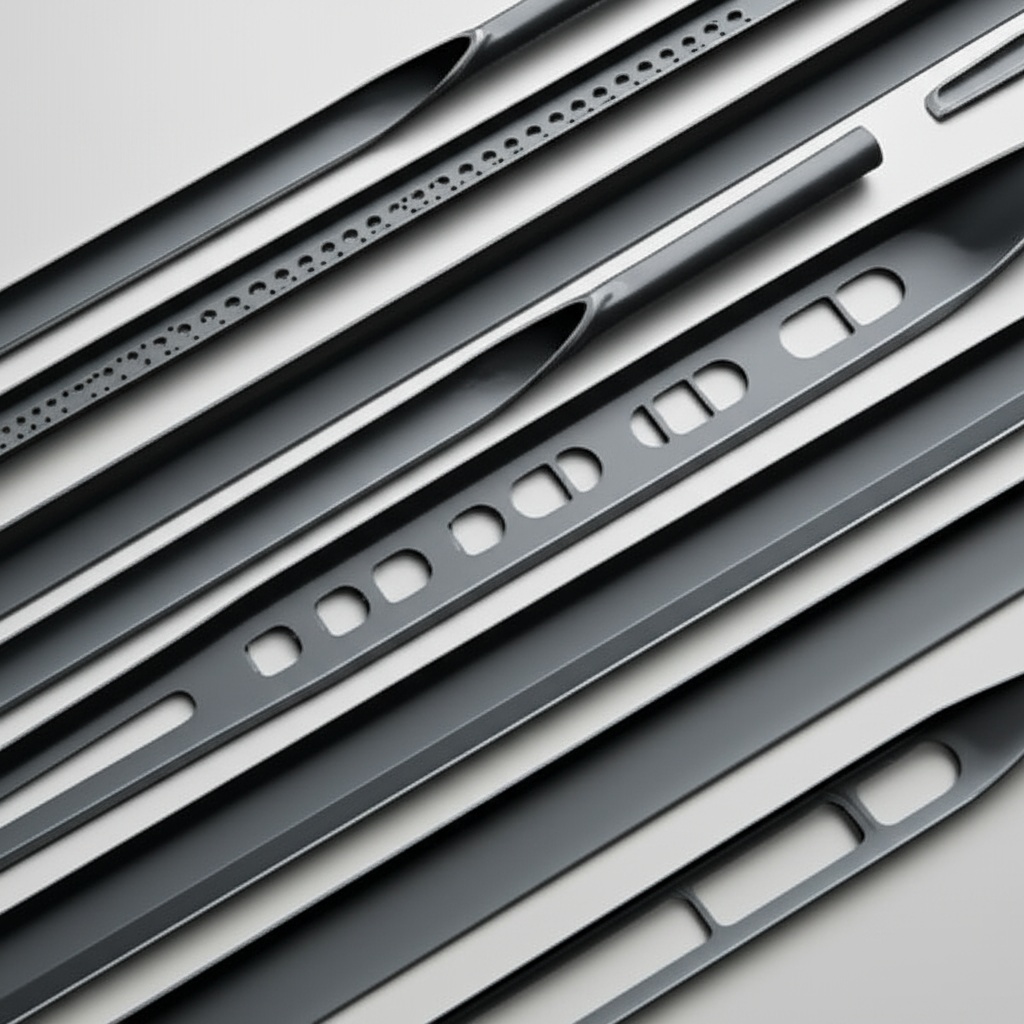Japan for Custom Engineered SiC Solutions

Share
Japan for Custom Engineered SiC Solutions
In the relentless pursuit of peak performance and durability across critical industries, custom silicon carbide (SiC) products have emerged as indispensable. From the microscopic intricacies of semiconductor manufacturing to the extreme demands of aerospace propulsion, the unique properties of SiC offer unparalleled advantages. This blog post delves into the world of custom engineered SiC solutions, particularly focusing on their impact and availability for discerning buyers in Japan.
For engineers, procurement managers, and technical buyers in industries spanning semiconductors, automotive, aerospace, power electronics, renewable energy, metallurgy, defense, chemical processing, LED manufacturing, industrial machinery, telecommunications, oil and gas, medical devices, rail transportation, and nuclear energy, understanding the capabilities of custom SiC is paramount. These advanced technical ceramics are not merely materials; they are enablers of next-generation technologies and processes.
What are Custom Silicon Carbide Products?
Custom silicon carbide products are precisely engineered components made from silicon carbide, a compound of silicon and carbon with a crystalline structure. Unlike off-the-shelf parts, custom SiC solutions are designed and manufactured to meet specific application requirements, including unique geometries, precise tolerances, and tailored material properties. This level of customization is essential for optimal performance in demanding industrial environments where standard materials simply cannot withstand the conditions.
The essence of custom SiC lies in its ability to deliver superior performance where conventional materials fail. Its exceptional hardness, high thermal conductivity, low thermal expansion, and remarkable chemical inertness make it ideal for extreme operating conditions. These attributes are what drive its adoption in high-performance industrial applications globally, including in Japan’s advanced manufacturing sectors.
Main Applications of SiC Across Industries
The versatility of silicon carbide allows it to serve a diverse range of critical applications:
- Semiconductor Manufacturing: SiC is vital for wafer processing equipment, furnace components, and susceptors due to its thermal stability and purity, ensuring high-yield production of microchips.
- Automotive Industry: Increasingly used in electric vehicle (EV) power electronics, SiC offers enhanced efficiency for inverters and charging systems, extending battery range and reducing size.
- Aerospace Components: For high-temperature structural components, jet engine parts, and thermal management systems, SiC’s heat resistance and lightweight properties are invaluable.
- Power Electronics: SiC power devices are revolutionizing the efficiency of power converters, motor drives, and industrial power supplies by reducing energy losses.
- Renewable Energy: In solar inverters and wind turbine converters, SiC components improve energy conversion efficiency and system reliability.
- Metallurgy: SiC is used in furnace linings, crucibles, and pouring spouts due to its excellent resistance to high temperatures and corrosive molten metals.
- Defense Contractors: For lightweight armor, missile components, and high-performance optics, SiC offers a combination of strength and thermal stability.
- Chemical Processing: Its extreme chemical inertness makes SiC ideal for pump seals, valve components, and heat exchangers in aggressive chemical environments.
- LED Manufacturing: SiC substrates are used for growing GaN (gallium nitride) epitaxial layers, crucial for high-brightness LEDs.
- Industrial Machinery: Wear-resistant components like bearings, nozzles, and mechanical seals benefit from SiC’s superior hardness and abrasion resistance.
- Telecommunications: SiC’s thermal management properties are utilized in high-power RF devices and base station equipment.
- Oil and Gas: Downhole tools and components exposed to abrasive and corrosive fluids rely on SiC for extended service life.
- Medical Devices: Certain surgical instruments and implants may leverage SiC for its biocompatibility and wear properties.
- Rail Transportation: SiC can be found in traction systems for trains, contributing to efficiency and reliability.
- Nuclear Energy: Future nuclear reactors are exploring SiC for its neutron resistance and high-temperature stability in core components.
Why Choose Custom Silicon Carbide?
The decision to opt for custom silicon carbide over standard materials or even off-the-shelf SiC components is driven by several critical advantages:
- Optimized Performance: Customization allows for precise tailoring of material properties and geometries to achieve maximum efficiency and longevity in a specific application.
- Exceptional Thermal Resistance: SiC maintains its strength and integrity at temperatures exceeding 1,000°C, making it ideal for high-temperature processing and thermal management.
- Superior Wear Resistance: With a hardness approaching that of diamond, SiC offers outstanding resistance to abrasion and erosion, extending component lifespan in harsh environments.
- Chemical Inertness: SiC exhibits remarkable resistance to acids, alkalis, and other corrosive chemicals, ensuring stability in aggressive chemical processing.
- High Thermal Conductivity: This property enables efficient heat dissipation, crucial for power electronics and thermal management applications.
- Low Thermal Expansion: Minimizes thermal shock and maintains dimensional stability across wide temperature fluctuations.
- Lightweight yet Strong: SiC offers an excellent strength-to-weight ratio, beneficial for aerospace and automotive applications where weight reduction is critical.
Recommended SiC Grades and Compositions
Silicon carbide exists in various grades, each with unique properties suited for different applications. Understanding these distinctions is crucial for selecting the right material for your custom SiC solution:
| SiC Grade/Type | Description | Key Properties | Typical Applications |
|---|---|---|---|
| Reaction-Bonded SiC (RBSiC) | Porous SiC infiltrated with molten silicon, forming a dense, strong composite. | Good mechanical strength, high thermal conductivity, excellent wear resistance, near net-shape capability. | Kiln furniture, pump components, wear parts, heat exchangers. |
| Sintered SiC (SSiC) | High-purity SiC densified by sintering at high temperatures without a binder phase. | Extremely hard, high strength at elevated temperatures, excellent chemical resistance, high purity. | Mechanical seals, bearings, nozzles, semiconductor components, armor. |
| Nitride-Bonded SiC (NBSiC) | SiC grains bonded by silicon nitride, offering a good balance of properties. | Good thermal shock resistance, moderate strength, good oxidation resistance. | Blast furnace linings, burner nozzles, kiln furniture. |
| Chemical Vapor Deposition SiC (CVD SiC) | High-purity SiC deposited from gaseous precursors, forming a thin, dense layer. | Extremely high purity, excellent chemical inertness, good thermal conductivity, smooth surface finish. | Semiconductor wafer carriers, optical components, aerospace mirrors. |
Design Considerations for SiC Products
Designing custom silicon carbide components requires a thorough understanding of the material’s properties and manufacturing limitations. Key considerations include:
- Geometry Limits: SiC is a hard and brittle material, making complex geometries challenging to machine. Designs should aim for simplicity and avoid sharp internal corners or very thin sections that could lead to stress concentrations.
- Wall Thickness: While SiC offers excellent strength, thin walls can be prone to breakage during machining or thermal shock. Optimal wall thickness depends on the specific application and SiC grade.
- Stress Points: Identify potential stress concentration areas during operation and design to distribute loads evenly. Finite Element Analysis (FEA) can be invaluable here.
- Mounting and Joining: Consider how the SiC component will be integrated into a larger assembly. Design features for mounting, such as bolt holes or grooves, need careful planning to prevent chipping or cracking.
- Tolerances: While SiC can be machined to high precision, overly tight tolerances can significantly increase manufacturing costs. Balance required precision with manufacturing feasibility.
Tolerance, Surface Finish & Dimensional Accuracy
Achieving high dimensional accuracy and specific surface finishes is crucial for many SiC applications. While SiC is challenging to machine due to its hardness, advanced grinding and lapping techniques enable impressive precision:
- Achievable Tolerances: Depending on the size and complexity of the part, tolerances can range from standard machining tolerances down to micrometers for precision components. Suppliers should be consulted early in the design phase to confirm achievable tolerances.
- Surface Finish Options: Surface finishes can vary from rough-machined to highly polished (Ra values in the nanometer range). Polished surfaces are often required for semiconductor applications, optical components, or where low friction is critical.
- Dimensional Accuracy: The consistency of dimensional accuracy across production batches is a hallmark of a reliable SiC manufacturer. Quality control measures, including CMM (Coordinate Measuring Machine) inspections, are vital.
Post-Processing Needs
After initial shaping, custom SiC components often require post-processing to enhance their performance and durability:
- Precision Grinding: Essential for achieving tight tolerances and specific surface finishes.
- Lapping and Polishing: Used to create extremely smooth and flat surfaces, crucial for applications like mechanical seals, semiconductor components, and optical elements.
- Sealing: In porous SiC grades, sealing might be necessary for specific applications to prevent fluid ingress.
- Coating: Applying thin film coatings (e.g., Diamond-like Carbon – DLC) can further enhance wear resistance, reduce friction, or provide electrical insulation.
- Inspection: Rigorous inspection processes, including non-destructive testing (NDT) such as ultrasonic testing or X-ray inspection, ensure the structural integrity and quality of the finished product.
Common Challenges and How to Overcome Them
While SiC offers remarkable advantages, its unique properties also present certain manufacturing and application challenges:
- Brittleness: SiC is a brittle material, susceptible to chipping or fracture under impact or excessive tensile stress.
- Mitigation: Careful design to avoid stress concentrations, proper handling during manufacturing and assembly, and protective packaging.
- Machining Complexity: Its extreme hardness makes SiC difficult and expensive to machine.
- Mitigation: Utilizing advanced diamond grinding techniques, optimizing tool paths, and partnering with manufacturers possessing specialized SiC machining expertise.
- Thermal Shock: While resistant to high temperatures, rapid temperature changes can induce thermal shock, potentially leading to cracking.
- Mitigation: Careful design with appropriate wall thicknesses, material selection with suitable thermal expansion coefficients, and controlled heating/cooling rates in application.
- Cost: Custom SiC components can be more expensive than conventional materials due to raw material costs and specialized manufacturing processes.
- Mitigation: Optimize design for manufacturability, consider the long-term total cost of ownership (TCO) given SiC’s extended lifespan, and work with efficient suppliers.
How to Choose the Right SiC Supplier
Selecting a reliable supplier for custom silicon carbide components is paramount. Look for a partner who offers:
- Technical Capabilities: Assess their expertise in SiC material science, design for manufacturability, and advanced machining processes. Do they have in-house engineering support?
- Material Options: A diverse range of SiC grades (RBSiC, SSiC, etc.) and the ability to recommend the most suitable material for your specific application.
- Quality Assurance: Robust quality control systems, certifications (e.g., ISO 9001), and a track record of consistent product quality.
- Production Capacity and Lead Time: Ability to meet your production volume requirements and deliver within agreed-upon timelines.
- Experience and Reputation: Look for a supplier with extensive experience in your specific industry and positive testimonials or case studies.
- Customization Support: A willingness to collaborate on design, prototyping, and iterative development to meet unique challenges.
When considering a supplier for custom silicon carbide parts, it’s worth noting the global landscape. Here is the hub of China’s silicon carbide customizable parts factories. As you are aware, the hub of China’s silicon carbide customizable parts manufacturing is situated in Weifang City of China. This region has been home to over 40 silicon carbide production enterprises of various sizes, collectively accounting for more than 80% of the nation’s total silicon carbide output.
We, Sicarb Tech, have been introducing and implementing silicon carbide production technology since 2015, assisting the local enterprises in achieving large-scale production and technological advancements in product processes. We have been a witness to the emergence and ongoing development of the local silicon carbide industry. Based on the platform of the national technology transfer center of the Chinese Academy of Sciences, Sicarb Tech is part of Chinese Academy of Sciences (Weifang) Innovation Park, an entrepreneurial park that collaborates closely with the National Technology Transfer Center of the Chinese Academy of Sciences. It serves as a national-level innovation and entrepreneurship service platform, integrating innovation, entrepreneurship, technology transfer, venture capital, incubation, acceleration, and scientific and technological services.
Sicarb Tech capitalizes on the robust scientific, technological capabilities and talent pool of the Chinese Academy of Sciences . Backed by the Chinese Academy of Sciences National Technology Transfer Center, it serves as a bridge, facilitating the integration and collaboration of crucial elements in the transfer and commercialization of scientific and technological achievements. Moreover, it has established a comprehensive service ecosystem that spans the entire spectrum of the technology transfer and transformation process. With more reliable quality and supply assurance within China, Sicarb Tech possesses a domestic top-tier professional team specializing in customized production of silicon carbide products. Under our support, 477+ local enterprises have benefited from our technologies. We possess a wide array of technologies, such as material, process, design, measurement & evaluation technologies, along with the integrated process from materials to products. This enables us to meet diverse customization needs. We can offer you higher-quality, cost-competitive customized silicon carbide components in China.
We are also committed to assisting you in establishing a specialized factory. If you need to build a professional silicon carbide products manufacturing plant in your country, Sicarb Tech can provide you with the technology transfer for professional silicon carbide production, along with a full-range of services (turnkey project) including factory design, procurement of specialized equipment, installation and commissioning, and trial production. This enables you to own a professional silicon carbide products manufacturing plant while ensuring a more effective investment, reliable technology transformation, and guaranteed input-output ratio. Feel free to contact us to discuss your specific requirements.
Cost Drivers and Lead Time Considerations
Understanding the factors that influence the cost and lead time of custom SiC components is crucial for project planning and budget management:
| Cost Driver | Description | Impact |
|---|---|---|
| Material Grade | Purity and specific type of SiC (e.g., SSiC vs. RBSiC). | Higher purity and specialized grades typically cost more. |
| Part Complexity | Intricate geometries, tight tolerances, and fine features. | Increases machining time and specialized tooling requirements, raising cost. |
| Volume | Quantity of parts ordered. | Larger volumes often lead to lower unit costs due to economies of scale. |
| Surface Finish | Requirement for highly polished or lapped surfaces. | Adds significant post-processing time and cost. |
| Tooling & Fixturing | Development of custom tools or fixtures for unique designs. | One-time cost for initial production runs. |
Lead times for custom SiC components can vary significantly depending on design complexity, material availability, and current production schedules. It’s advisable to engage with your chosen supplier early in the project to establish realistic timelines.
Frequently Asked Questions (FAQ)
Here are some common questions regarding custom silicon carbide products:
Q1: Is silicon carbide electrically conductive?
A1: Silicon carbide can be either an electrical insulator or a semiconductor, depending on its purity and doping. This dual nature allows for its use in both insulative structural components and advanced power electronic devices.
Q2: Can custom SiC components be repaired if damaged?
A2: Due to the extreme hardness and brittleness of SiC, traditional repair methods like welding are generally not feasible. Small chips or surface damage might be addressed through grinding or polishing, but significant damage usually necessitates replacement. Prevention through proper design and handling is key.
Q3: What are the typical operating temperature limits for SiC?
A3: Silicon carbide can operate continuously at temperatures up to 1,600°C (2,900°F) in oxidizing atmospheres, and even higher in inert environments, making it one of the most high-temperature resistant engineering ceramics available.
Conclusion
Custom silicon carbide products are at the forefront of advanced material science, offering an unmatched combination of thermal, mechanical, and chemical properties that are critical for cutting-edge industrial applications in Japan and globally. For industries such as semiconductors, aerospace, power electronics, and more, investing in custom engineered SiC solutions translates to enhanced performance, extended lifespan, and ultimately, a stronger competitive edge.
By carefully considering design, material grades, and partnering with an experienced and reliable supplier like Sicarb Tech – a company deeply rooted in the silicon carbide manufacturing hub of Weifang, China, and backed by the scientific prowess of the Chinese Academy of Sciences – businesses can unlock the full potential of custom SiC to meet the most demanding engineering challenges. The value proposition of custom silicon carbide in demanding industrial environments is clear: it is an investment in durability, efficiency, and future innovation.

About the Author: Sicarb Tech
We provide clear and reliable insights into silicon carbide materials, component manufacturing, application technologies, and global market trends. Our content reflects industry expertise, practical experience, and a commitment to helping readers understand the evolving SiC landscape.




